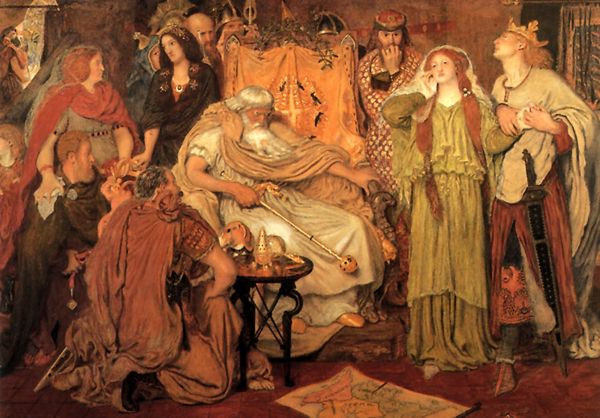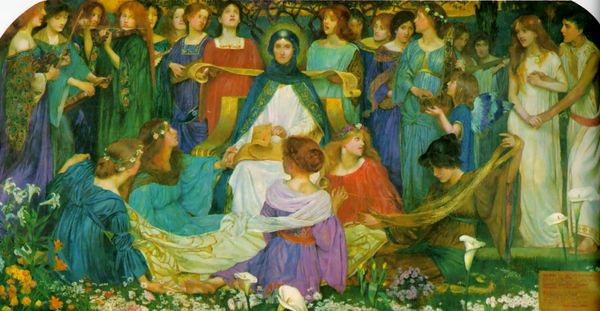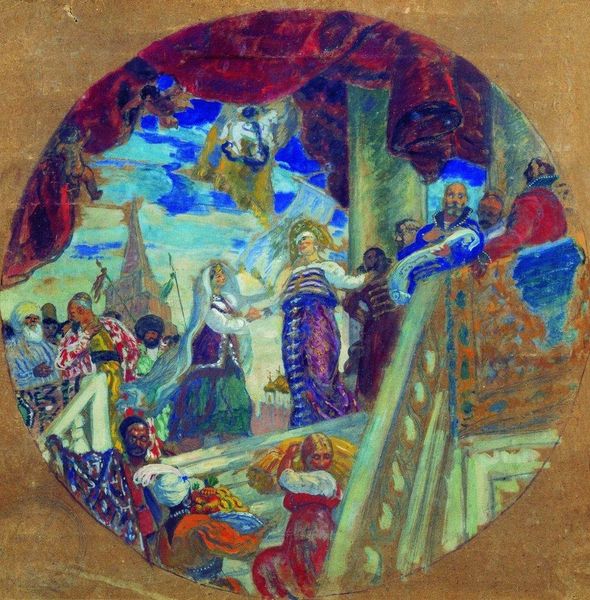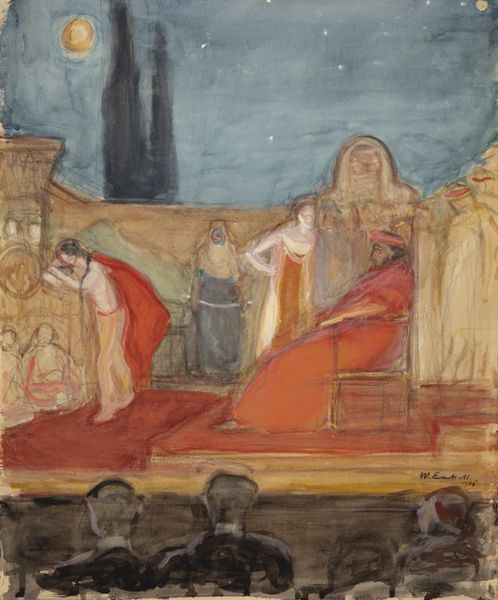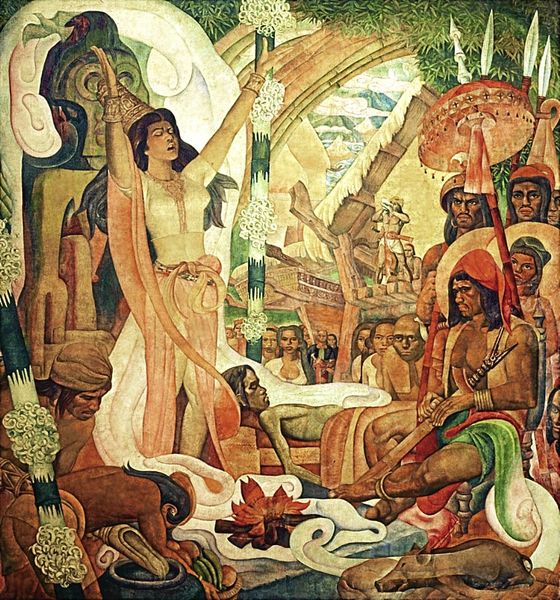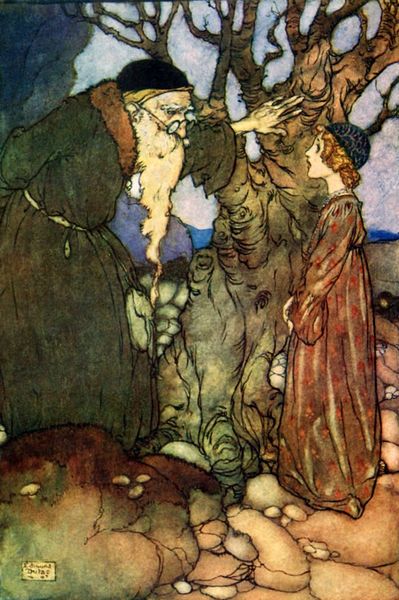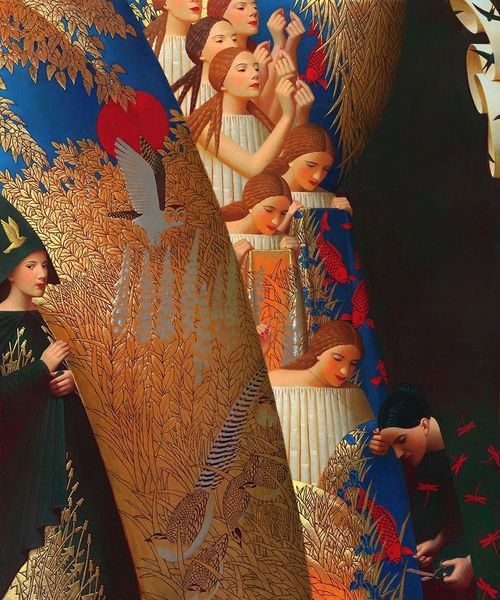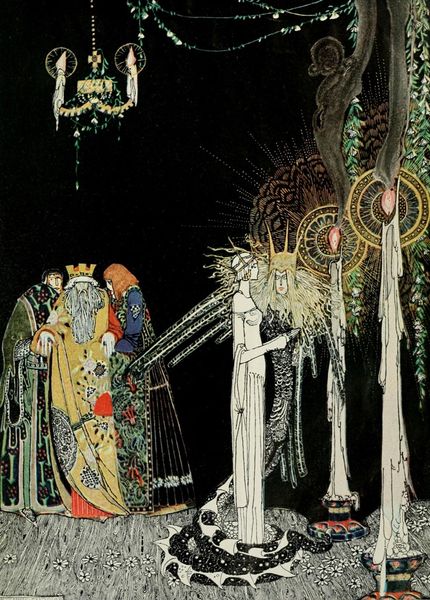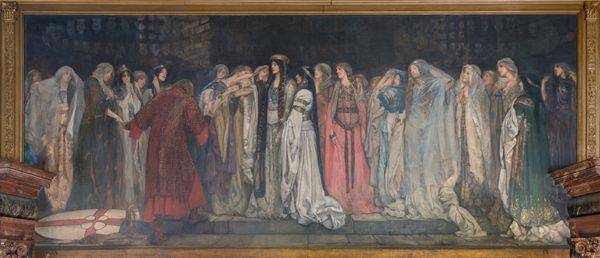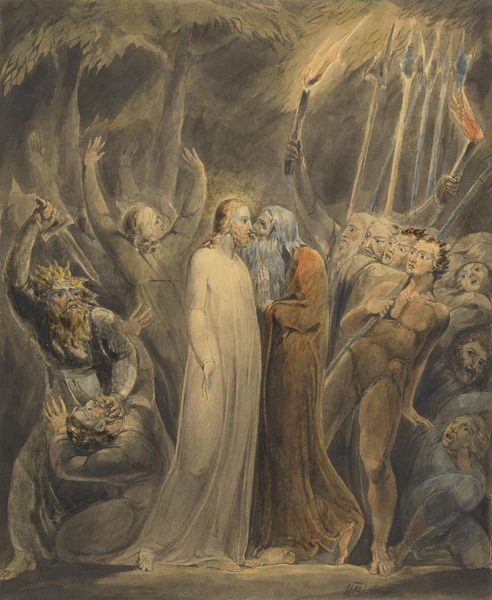
painting, oil-paint
#
allegories
#
allegory
#
symbol
#
painting
#
oil-paint
#
painted
#
figuration
#
oil painting
#
studio composition
#
group-portraits
#
symbolism
#
painting art
#
history-painting
Dimensions: 72.1 x 97 cm
Copyright: Public domain US
Curator: Alright, let's dive into Frantisek Kupka's "The Crowning of Helen," painted in 1906. A symbolic history painting currently in a private collection. What strikes you first? Editor: Oh, the dreaminess! It's like a gorgeous, hazy memory. The figures are stiff, yet there's something very emotionally evocative about their placid gazes, against that vibrant backdrop. The light almost vibrates. It's unsettlingly beautiful. Curator: Kupka, at this point, was deeply involved with the symbolist movement, interested in mythology, spiritualism, and in addressing contemporary societal issues through allegory. His depiction of Helen being crowned reflects a complex interplay of beauty, power, and the chaos it unleashes. Consider the historical lens: the Edwardian era grappling with shifting social structures, the looming shadow of war. Editor: Right, right. So Helen, always the 'face that launched a thousand ships,' as the embodiment of desire... it makes you wonder what exactly is being crowned here. Is it beauty itself, or maybe the destructive potential tied to that ideal of beauty? It feels pretty loaded, you know? Almost ironic, or even cynical. Curator: Exactly. There is this visual paradox. The muted tones, the mosaic-like painting quality evokes earlier Byzantine or medieval traditions. In those eras female power was heavily restricted, especially a disruptive, destructive one like Helen's. He deliberately juxtaposes historical visuality and modern anxieties about war. Editor: It's totally working on me. Those golden hues really make it feel grand, while all that darkness creeping in from the edges hint at something sinister simmering underneath. Also, that small figure cowering at the far left. Like she KNOWS what will come after this Crowning. She embodies dread, it seems to me! Curator: Very insightful! Kupka was a real intellectual, actively trying to visualize the underlying philosophical structures that make our culture tick. How institutions elevate some ideas or figures to iconic status—while other issues continue to haunt the underbelly of social conscience. Editor: It gives you chills, in a good way! Well, a thought-provoking way. Definitely a memorable piece. Curator: Agreed. Kupka provokes us to confront the long and often brutal shadow cast by even the most celebrated cultural icons. A sobering message that is still relevant today.
Comments
No comments
Be the first to comment and join the conversation on the ultimate creative platform.
